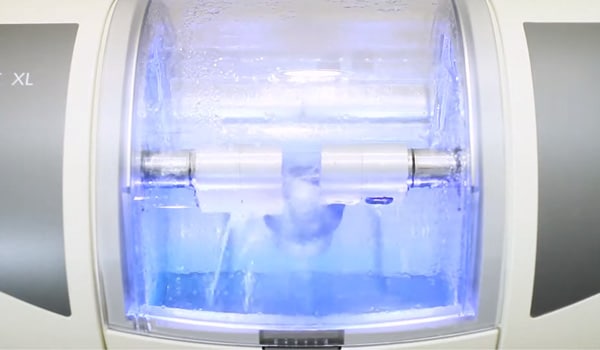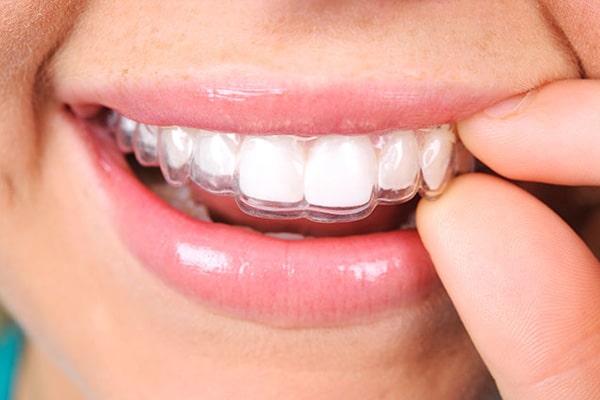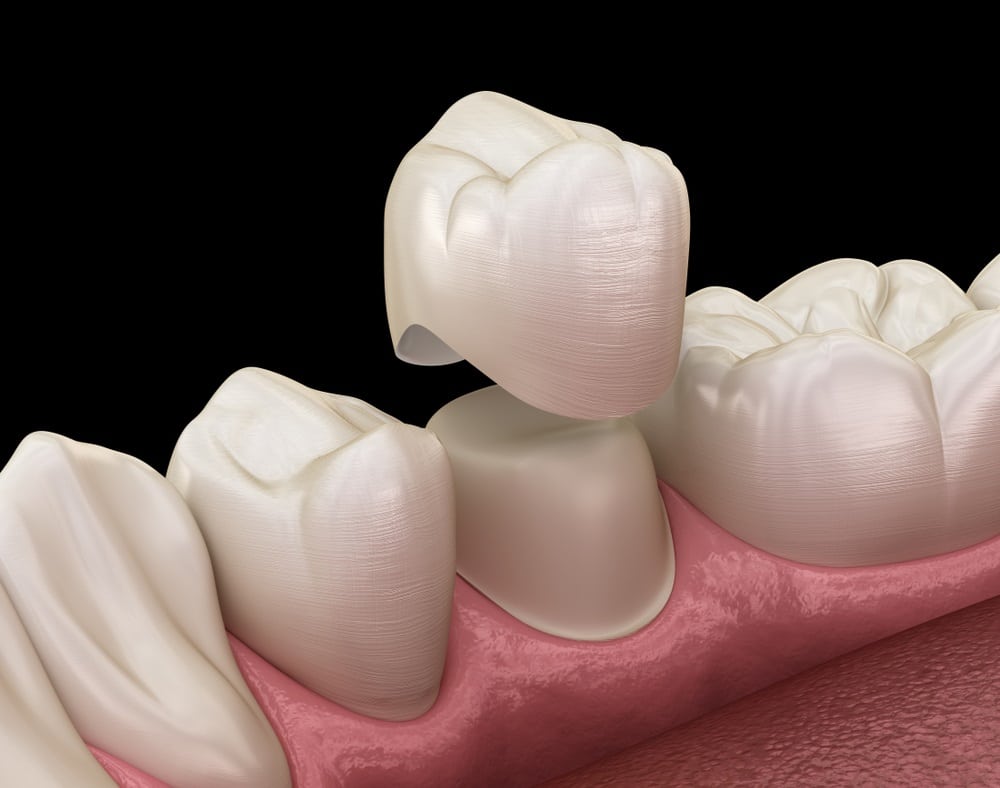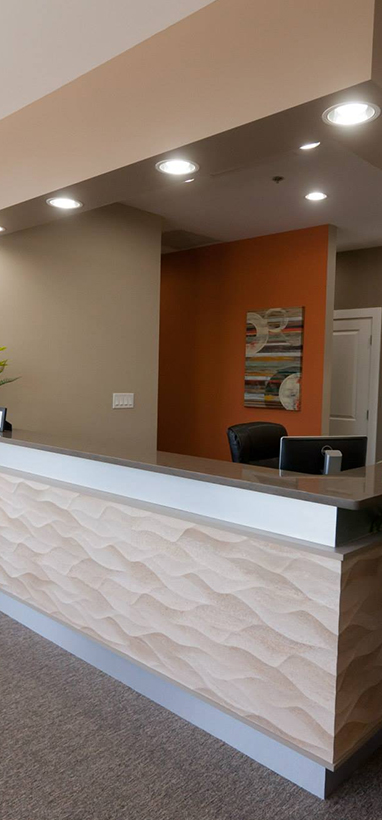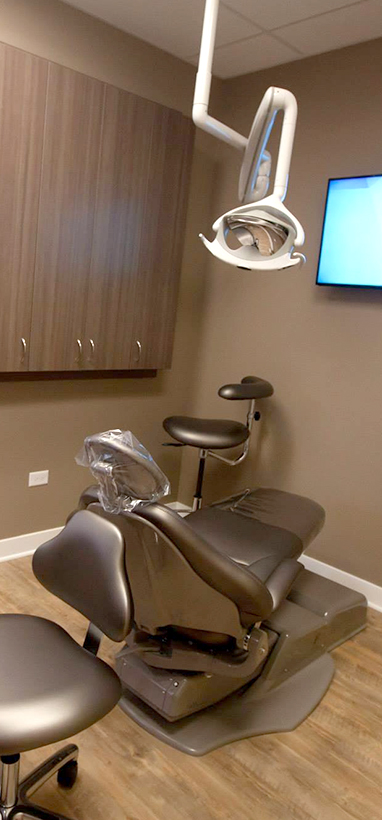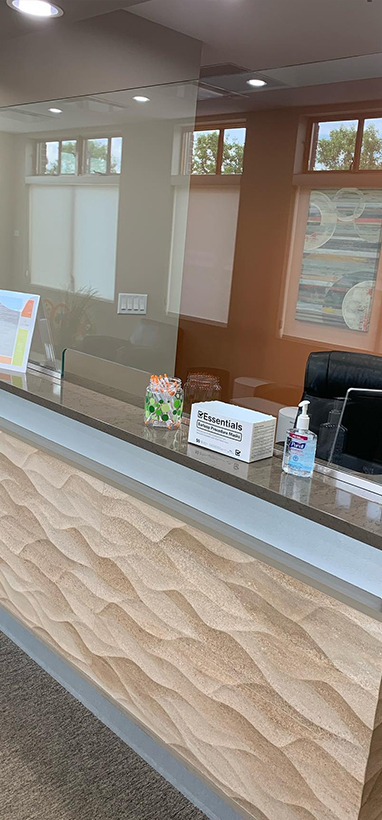1516 Legacy Cir, Naperville, IL 60563
What Is Deep Cleaning Teeth And Is It Necessary?
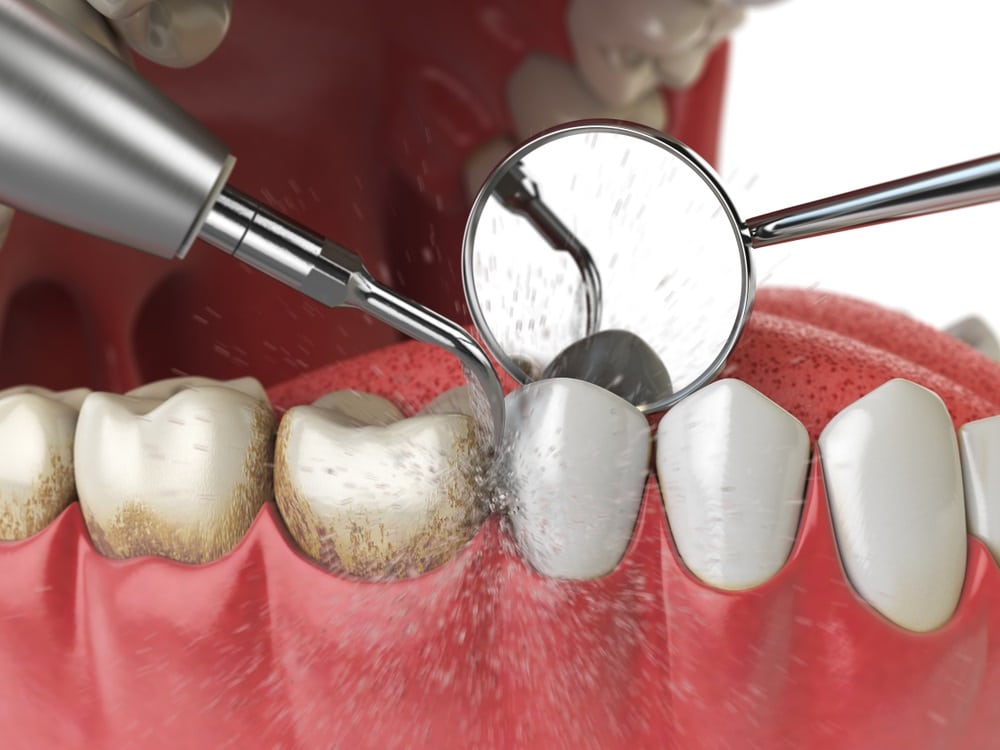
Chances are you’ve been to the dentist before (wild guess) and, like just about everyone, you’ve gotten your teeth cleaned. But sometimes, a standard cleaning just isn’t going to cut it when it comes to eliminating bacteria and getting your gums back to being as healthy as possible. If this is the case, you likely need a dental deep clean. In this article, we’ll explore what deep teeth cleaning really consists of and any other information you need to know before scheduling your dental deep cleaning.
What is deep cleaning teeth?
Just what exactly does a deep cleaning consist of and how would you know if you need one?
Also called periodontal scaling and root planning, or SRP, deep tooth-cleaning starts where a regular dental cleaning leaves off and takes it to another level. Specifically, your hygienist will focus on the outer surface of the roots and below the gumline. Dental cleaning may require anesthesia and multiple follow-up visits to make sure your gums are healing properly.
You might need a deep cleaning if there is tartar buildup that causes infection of the gums. When your gums are infected, pockets may form, which is essentially a widening of your gumline that pulls away from the tooth. This is a sign of gum disease – Periodontitis, to be exact. This can be seriously problematic because the loss of this connective tissue can cause bone loss, and if not treated, the loss of your tooth.
How often should you get your teeth cleaned?
Before diving into whether a dental deep cleaning is necessary for you, how often should you get your teeth cleaned in general? The American Dental Association recommends regular dental visits tailored to your dentist. If you’re taking excellent care of your teeth and going in for regular cleanings, a dental deep cleaning may not be necessary. But if you’re noticing that your gums look red or swollen, if your teeth bleed a little when you brush or floss, or if your teeth appear “longer” than they used to, these are likely signs that a dental deep cleaning is necessary.
Don’t worry, though. If you’ve been told by your dentist that you need deep cleaning, you’re definitely not alone. Almost half of Americans suffer from gum disease.
How Long Does a Deep Cleaning Take?
Typically, a deep cleaning involving scaling and root planning can be completed within a 1-2 hour visit to the dentist. However, if there are numerous trouble spots and areas of infection, two appointments may be needed. If two appointments are needed, the dental hygienist will usually focus on half your mouth per appointment. You’d then schedule an appointment in 6 weeks to check how well the gums have healed after the deep dental cleaning. Maintenance appointments to monitor the condition of your teeth and gums will be necessary every 3-4 months thereafter.
Does Deep Cleaning Teeth Hurt?
There are some individuals for whom any visit to the dentist can cause anxiety, but while a dental deep cleaning might cause some discomfort, your dentist will use a local anesthetic to numb your gums during cleaning. You really shouldn’t feel pain during the procedure. However, your gums may feel somewhat tender after the procedure, but there are ways to mitigate that (we’ll elaborate on this later on in the article).
Benefits of Deep Cleaning Teeth
All of our mouths are full of bacteria and plaque, which is why brushing and flossing twice daily is so important. But a dental deep cleaning removes the bacteria and plaque that has led to the infection of the gums. The benefits of deep cleaning teeth are numerous.
Dental deep cleaning:
- Cleans your teeth as thoroughly as possible
- Helps to prevent gum disease like gingivitis and periodontitis from getting worse
- Helps with tooth sensitivity and pain
- Helps reduce persistent bad breath
- It restore your gums to proper health
- Helps to dramatically improve the appearance of your mouth
- Can help prevent teeth from loosening or falling out
As more and more research connects the progression of gum disease with the development of chronic illnesses such as heart disease, diabetes, dementia, and more.
Preventing the progression of gum disease isn’t important simply for your oral health, it may be critical for your overall health and longevity.
Deep Cleaning Teeth Before and After
The visual results of dental deep cleaning can be quite dramatic. If you’ve had worries about the appearance of your smile or have been concerned about the look of your teeth in general, a dental deep cleaning can go a long way towards restoring your beautiful smile.
Deep Cleaning Teeth Aftercare
Now that you’ve seen the end result, what happens directly after your dental deep cleaning, and how do you care for your teeth?
After the procedure, your dentist will provide you with instructions on how to best care for your teeth after your deep dental cleaning based on your unique dental situation. You’ll likely be asked to come in for more frequent check-ins, with a first check-up roughly six weeks later. However, there are a few best practices that we can share with you that are valid for just about every deep cleaning situation:
Don’t eat until your mouth numbness has subsided completely. You may be hungry after your procedure as you likely won’t have eaten, but it’s important to make sure you can feel each and every sensation in your mouth before eating. That way you won’t cause damage to your gums or interrupt the healing process.
Avoid certain foods. While your gums are healing, there are certain foods you shouldn’t eat, such as acidic foods like citrus, challenging-to-eat foods like steaks and large burgers, and foods with small pieces that might get stuck in your gums, such as nuts and popcorn.
Rinse mouth with saltwater. Your dentist may recommend you rinse your mouth several times a day with saltwater. This will keep the treated area clean and help avoid infection.
Deep Cleaning of Teeth Side Effects
A dental deep cleaning isn’t a major procedure, but there are a few possible side effects to be aware of. Following your cleaning, your teeth might be sensitive and your gums will likely experience some swelling. This can last a few weeks, but if you’re experiencing any major swelling, please contact your dentist. There may also be some minor bleeding for the first 24 hours.
Teeth Sensitive after Cleaning
As mentioned above, you can expect for your teeth to hurt after cleaning. This will eventually subside, and there are plenty of options for mitigating the pain that your doctor will provide to you. Also, avoiding certain foods, as mentioned above, can help prevent exacerbating the sensitivity and pain.
Can Teeth Fall Out After Deep Cleaning?
Deep cleaning is designed to arrest the deterioration of your gums that lead to the loss of teeth. Deep cleanings are exceptionally safe, but it’s important to understand that deep cleanings can cause damage to your teeth and roots if not performed by a trained professional.
At Living Well Dental Group, our hygienists and dentists are exceptionally trained and well versed in dental deep cleaning. If you’re concerned about your oral health and think you may qualify for deep cleaning, put yourself in our capable hands and we’ll ensure that we do the absolute best to expertly clean your mouth and accelerate the process towards your best smile and healthiest mouth.



